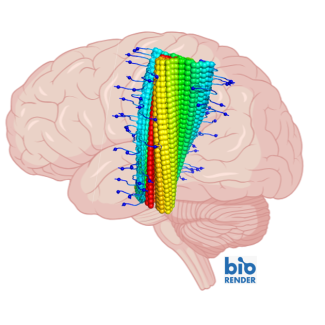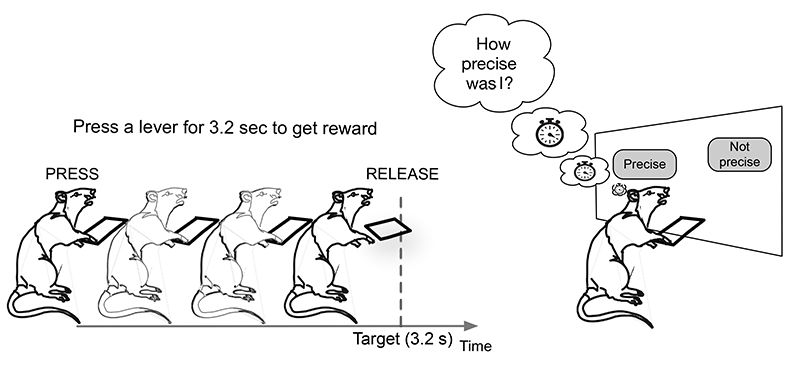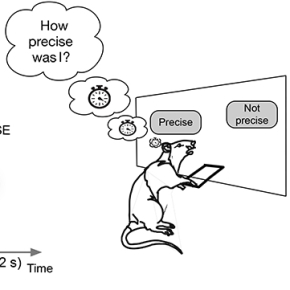
Rats can estimate their timing accuracy
|
|
Just like humans, rats are able to estimate a temporal error in their actions. This discovery, made by researchers from CNRS and the CEA together with a scientist from the Polish Academy of Sciences, opens up new avenues for identifying the mechanisms and brain structures which underlie the internal representation of time. Their work appears in the 21 February 2022 edition of the Proceedings of the National Academy of Sciences (PNAS).
Thanks to their capacity for introspection, human beings are able to estimate the duration of their actions. When they perform a task – especially a time-based task – they can evaluate their performance and correct themselves in order to do better next time. This ability is not exclusive to the human species: new research has just demonstrated for the first time that the rat can also do so!
These results were obtained in a joint study undertaken by researchers from the Institut des neurosciences Paris-Saclay (CNRS/Université Paris-Saclay), Neurospin (CEA) and a researcher from the Institute of Psychology of the Polish Academy of Sciences.
Scientists developed a behavioural task in which rats were taught to press a lever for at least 3.2 seconds. In a second phase, two feeders distributed a reward according to the animal's performance: if it completed the task with a small error, just above 3.2 seconds, it received food in the left feeder, and in case of a larger deviation, in the right feeder1 . The rats thus learned that the location of the reward depended on their accuracy.
In a third stage, the rodents were given a choice of both feeders, but the reward was only distributed after they chose one feeder. The result was that the rats chose the correct side, i.e. the one corresponding to their temporal error – “precise” for the left-hand feeder or “not precise” for the right-hand one – and, confident in finding food there, they did this all the more quickly.
The research team explains this behaviour by the animals’ past experience (track record of rewards obtained), but also by the rats’ analysis of their performance: during each trial, the rodents evaluated the precision with which they had carried out the task requested and were able to engage in “error monitoring”.
Demonstrating this ability in rats opens doors to new kinds of animal research to better understand these behaviours in humans. How does the brain assess temporal errors? This fundamental question in neuroscience underlies the learning process. Future research will be able to deepen fundamental knowledge on the mechanisms and brain structures involved in our internal representation of time.

© Kononowicz et al. / PNAS
- 1Error thresholds were adjusted for each rat, depending on the performance of each animal.
Rodents monitor their error in self-generated duration on a single trial basis. T. W. Kononowicz, V. van Wassenhove and V. Doyère. PNAS, week of February 21 2022.


